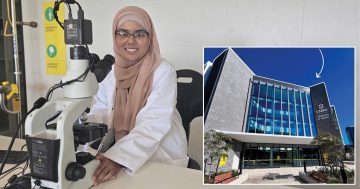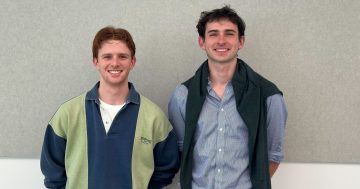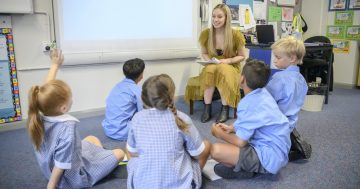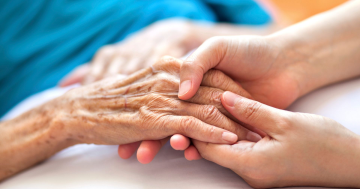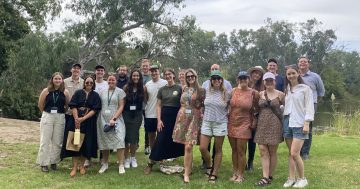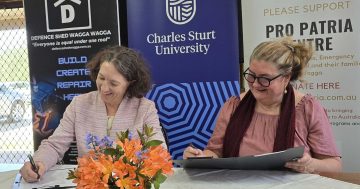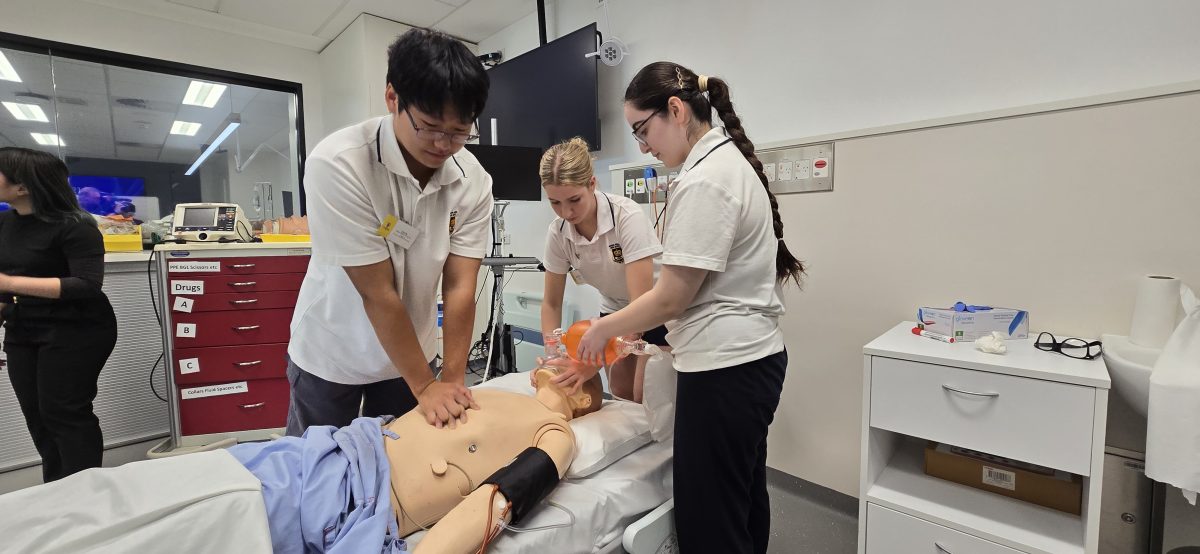
The UNSW Rural Clinical Campus Gateway Workshop for local and regional high school students. Photo: Shri Gayathirie Rajen.
In an effort to address the rural healthcare workforce challenge in the Riverina, the University of New South Wales (UNSW) designed an innovative program to inspire high school students in the region to pursue a future in health.
The Gateway Program was recently held at the UNSW Biomedical Sciences Centre in Wagga Wagga, attracting around 70 students from towns across the Riverina, including Hay, Hillston, Albury, and Tumbarumba.
UNSW Associate Dean of Rural Health, Professor Tara Mackenzie, said the program’s unique approach provided transportation, mentorship, and early career exposure.
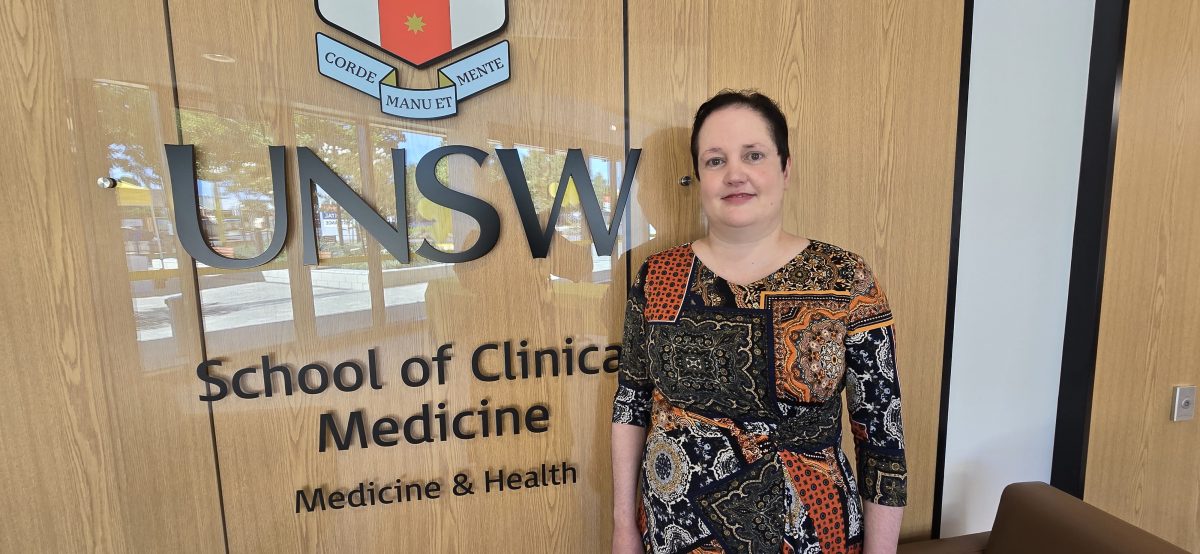
UNSW Associate Dean of Rural Health, Professor Tara Mackenzie. Photo: Shri Gayathirie Rajen.
“We actually organised buses to bring students from Hay and Hillston so they could all come together, rather than relying on parents taking time off work to bring them. They seem to have had a great time and really enjoyed it,” Professor Mackenzie said.
“Programs like this will encourage students to stay in the region. There is strong evidence that if you complete your university degree in a rural setting, such as our medical degree here, and then do your first year as a doctor in that setting, you are more likely to stay.
“That’s exactly what we need, not just for Wagga but for places like Hay, Hillston, Lake Cargelligo, and other remote areas. It’s really important that our local communities are served by local doctors.”
Wagga Wagga High School students Cipriano Cumla and Pippa Errington, who are interested in pursuing medicine after school, found the program insightful.
“Professor Mackenzie spoke in-depth about medicine as a career path, which was great,” Cipriano, 17, said.
Cipriano said having a medical school in the Riverina gave rural students the assurance and confidence that getting into medicine was achievable.
“There’s always that stereotype that it’s a really hard and demanding course, but having a medical program here with slightly lower expectations makes a future in medicine more accessible for us,” he said.
“Seeing how many kids showed up, I didn’t realise there were so many people with the same interests as me.”
Pippa, 17, has always wanted to become a doctor.
“I’m really interested in medicine and was hoping to study at UNSW, so I thought this would be a great opportunity to get an overview of what it would be like.”
Born and raised in Wagga, Pippa hopes to study and further her career in the region.
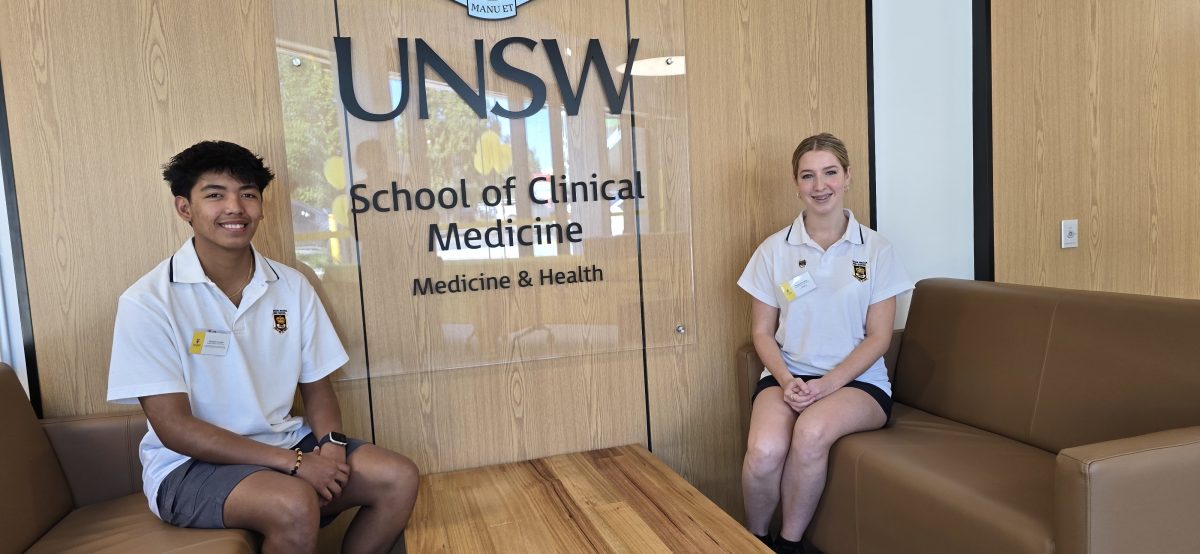
Wagga Wagga High School students Cipriano Cumla and Pippa Errington want to become doctors. Photo: Shri Gayathirie Rajen.
Zahra Nurthen and Kate Langfield travelled from Tumbarumba to attend the program.
Zahra participated in the program to learn more about medicine and physiotherapy. She is currently completing her traineeship at Wagga Base Hospital to become an assistant in nursing.
“I do a lot of manual handling because I’m in the surgical ward. I thought signing up for physiotherapy would help me a lot with that,” Zahra said.
“It’s a lot easier being close to home, and I don’t have to travel as far to get that education.
“It gives a lot more people the want and ability to study what they want without travelling as far.”
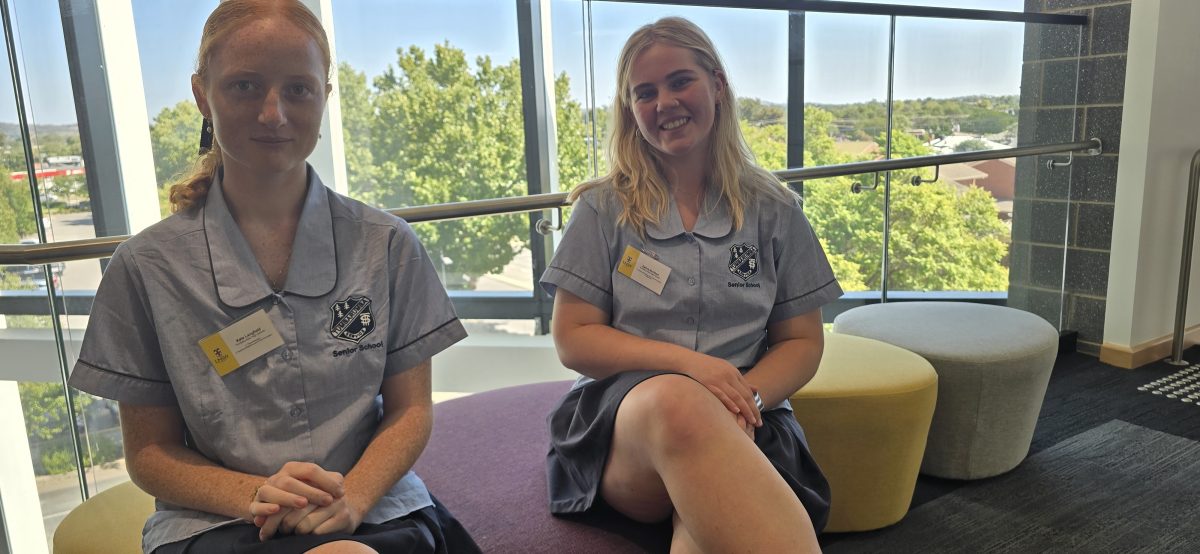
Tumbarumba-based Zahra Nurthen and Kate Langfield attended the program with four other students from their town. Photo: Shri Gayathirie Rajen.
Kate signed up for physiotherapy, food, nutrition, and dietetics and said the program was a great opportunity for those living in regional towns. Rural students didn’t usually get such opportunities.
“I was more drawn to physiotherapy because I want to do something sport-related, something that will keep me active but also help other people as well,” Kate said.
“I like being close to home and family, but I also want to go out and see Australia for what it is while still staying close to home.
“I don’t really like cities as much. It’s a great opportunity to be living close to a place with better opportunities instead of travelling six hours when there’s something only an hour away.”
The program is designed for students in Years 9 to 12 who are interested in pursuing careers in physiotherapy, pharmacy, exercise physiology, dietetics, optometry and medicine.
Students who participate in the Gateway Program also receive critical support to secure an early offer to UNSW through the Gateway Admission Pathway.
The Gateway Admission Pathway is an alternative pathway to UNSW that considers more than just a student’s ATAR. It offers early entry to UNSW or a significantly lower ATAR entry requirement for a range of degrees.
Students who attend university through the Gateway Admission Pathway become eligible for equity and accommodation scholarships and gain exclusive access to academic and transition support.







